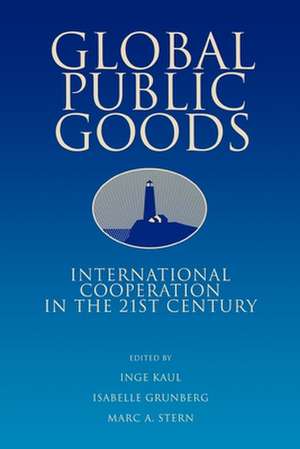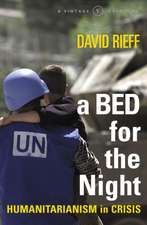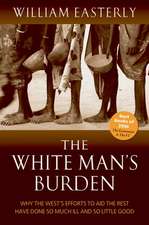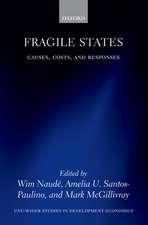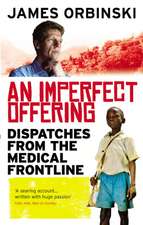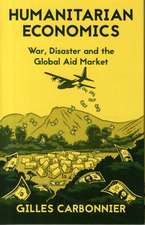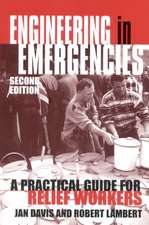Global Public Goods: International Cooperation in the 21st Century
Editat de Inge Kaul, Isabelle Grunberg, Marc Sternen Limba Engleză Paperback – 28 iul 1999
HIV, drug trafficking, and financial volatility. These issues are not poverty-related but instead concern global housekeeping, which helps to ensure an adequate provision of global public goods. Contributors include Amartya Sen, the 1998 Nobel Laureate in Economics, Jeffrey Sachs of the Harvard
Institute for International Development, Joseph Stiglitz of the World Bank, and many others.
Preț: 781.34 lei
Preț vechi: 1070.33 lei
-27% Nou
Puncte Express: 1172
Preț estimativ în valută:
149.53€ • 154.47$ • 124.45£
149.53€ • 154.47$ • 124.45£
Carte tipărită la comandă
Livrare economică 25 martie-08 aprilie
Preluare comenzi: 021 569.72.76
Specificații
ISBN-13: 9780195130522
ISBN-10: 0195130529
Pagini: 592
Ilustrații: figures, tables
Dimensiuni: 156 x 233 x 27 mm
Greutate: 0.76 kg
Editura: Oxford University Press
Colecția OUP USA
Locul publicării:New York, United States
ISBN-10: 0195130529
Pagini: 592
Ilustrații: figures, tables
Dimensiuni: 156 x 233 x 27 mm
Greutate: 0.76 kg
Editura: Oxford University Press
Colecția OUP USA
Locul publicării:New York, United States
Descriere
Edited by the United Nations Development Programme, this collection of papers offers a new rationale and framework for international development cooperation. Its main argument is that in actual practice development cooperation has already moved beyond aid. In the name of aid (i.e. assistance to poor countries), we are today dealing with issues such as the ozone hole, global climate change, HIV, drug trafficking and financial volatility. All of these issues are notreally poverty-related. Rather, they concern global housekeeping: ensuring an adequate provision of global public goods.
Recenzii
'Many common benifits such as law enforcement depend on the co-operation of national governments, not on supernational bodies, Jeffrey Sachs, one of the report's contributors. An the huge number of existing aid, health and envioromental charities can be relied on to help transfer costs and benifits, says Amartya Sen, last year's winner of the Nobel prize for economics, and moving spirit behind the report.' The Economist (UK) 8/5/1999
